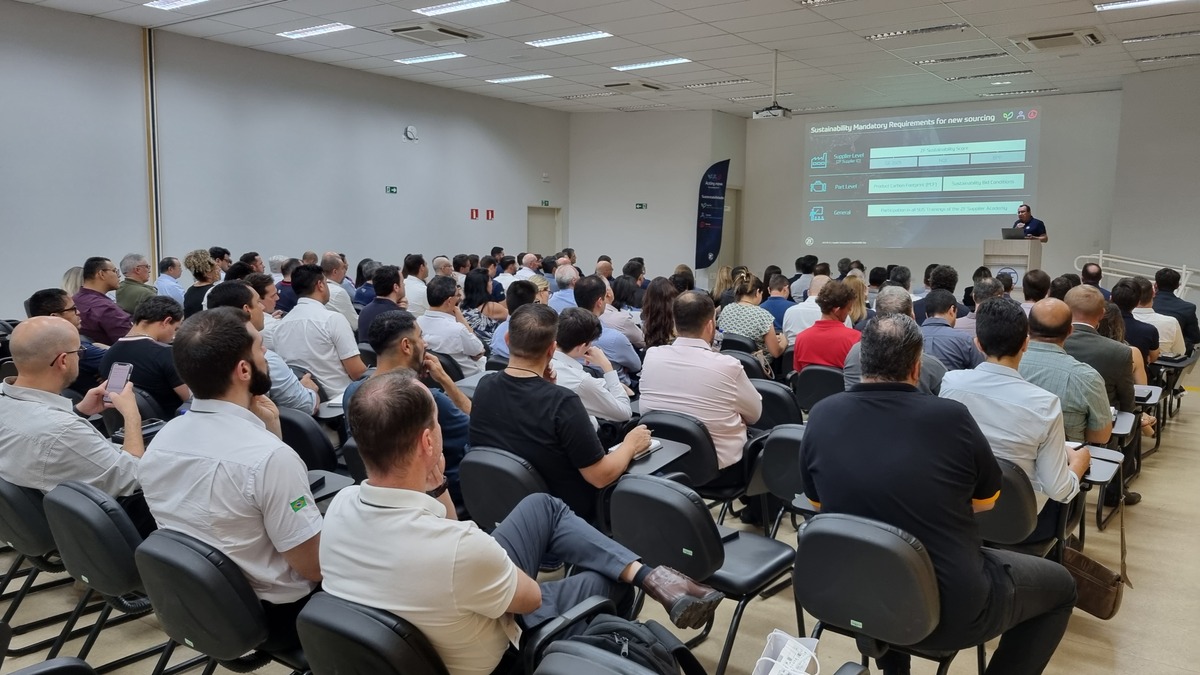The meeting aims to align ESG actions and commitment in the company's supply chain


By Redação AutoIndústria | 9/25/23 | Translated by Jorge Meditsch
The autoparts and component manufacturer ZF met with 60 suppliers in Sorocaba, SP, to discuss sustainability. In its second edition, the Sustainability Day will address ESG actions and goals in the company’s supply chain.
According to Tarcísio Costa, ZF South America’s Materials Management vice-president, the meeting is intended to align objectives with the suppliers and evaluate results achieved.
“In the first edition of the event in 2022 we could open dialogue for a collaborative work to decarbonize the supply chain to meet strict control and compliance standards.
ZF aims to reduce CO2 emissions by 80% in its units by 2039 and by 40% in its supply chain, compared to 2019. The company expects to become carbon-neutral by 2040.
In the event, ZF presented its initiatives regarding the environment, social and governance areas. It was an invitation for the suppliers to leverage actions and measures, as shown by five companies of the chain.
“Those actions require structure, concept and process changes by our side and the suppliers, and we must evolve together in this journey. To follow it, we keep an open channel with the suppliers with frequent communication to ensure the development of the actions”, said the vice president.
ZF emphasizes that to designate new suppliers it begun to demand some ESG measures. To apply as supplier, a company must use certified renewable energy at least by 2025, to disclose the process to hire new employees and the labor conditions and policies it offers.
Empresa também está criando empresa dedicada para o segmento
Operação começa com sensor de NOx para pesados
Empresa muda embalagens para dificultar essa prática e quer crescer 10% este ano no mercado…
Mercado mundial de elétricos, mesmo na China, passa por momentos de incertezas
Anderson Pontalti mostra os avanços da empresa nos últimos dez anos, com operações internacionais triplicadas
No Brasil, empresa quer crescer 300% no segmento de reposição